Fan Rights

How does the growth of technology affect the business aspects of sports, such as ticket sales and broadcasting rights ?
The growth of technology has significantly transformed various aspects of business, including sports. Technology has revolutionized how activities like ticket sales and broadcasting rights are conducted, creating new opportunities for revenue generation and enhancing the fan experience. In this article, we will explore the ways in which technology has affected the business aspects of sports. One of the most significant impacts of technology on ticket sales is the emergence of online platforms. These platforms have made it easier for fans to purchase tickets from anywhere in the world, at any time. They also provide a more convenient and secure way of buying tickets, reducing the risk of fraud or counterfeit tickets. Mobile applications have also played a crucial role in transforming ticket sales. Fans can now purchase tickets directly from their smartphones, making the process even more convenient. Additionally, some apps offer features such as virtual ticket wallets, allowing fans to store their tickets digitally and access them easily on game day. Technology has also enabled the implementation of dynamic pricing models for sports tickets. This approach involves adjusting ticket prices based on factors such as demand, opponent, and time remaining until the event. By using data analytics tools, teams and organizations can optimize their pricing strategies to maximize revenue while still providing fair prices for fans. The rise of streaming services has had a profound impact on the broadcasting rights industry. These platforms allow fans to watch live sports events from anywhere with an internet connection, expanding the potential audience for sporting events. As a result, broadcasting rights fees have increased significantly, generating substantial revenue for sports leagues and organizations. Technology has also enhanced the viewing experience for fans through interactive features integrated into broadcasts. These features include things like real-time statistics, social media integration, and alternate camera angles. By providing a more engaging and personalized viewing experience, these technologies help attract and retain viewers, further increasing the value of broadcasting rights. Finally, advancements in virtual reality (VR) and augmented reality (AR) technologies are beginning to influence the broadcasting rights landscape. These technologies offer new ways for fans to experience sports events, such as virtual attendance or immersive replays. As these technologies become more widespread and affordable, they could potentially create additional revenue streams for sports organizations through specialized content offerings. In conclusion, the growth of technology has had a profound impact on the business aspects of sports, particularly in areas like ticket sales and broadcasting rights. By embracing these advancements and adapting their strategies accordingly, sports organizations can continue to thrive in an increasingly competitive marketplace while providing fans with unprecedented access and engagement opportunities.

Can you provide examples of successful fan support campaigns for different artists ?
Successful fan support campaigns for various artists have been instrumental in promoting their work and achieving their goals. Examples include Taylor Swift's "1989" world tour, Beyoncé's "Lemonade" release, and BTS's "Love Myself" anti-violence and anti-bullying campaign. These campaigns engaged fans through social media, exclusive content, and community building, resulting in increased album sales, critical acclaim, and positive change.

What role do international organizations play in promoting climate justice and human rights ?
International organizations play a crucial role in promoting climate justice and human rights by setting standards, offering technical assistance, facilitating dialogue, monitoring progress, and raising awareness.

How do fan support events differ between music genres or cultures ?
The text discusses the variations in fan support events across different music genres and cultures. It highlights how these events differ in terms of concert tours, meet and greets, signings, fan clubs, and online communities. The examples provided illustrate the unique traditions and practices associated with each genre or culture, showing how artists connect with their audiences in diverse ways.

How does climate change affect the rights of marginalized communities ?
Climate change disproportionately affects marginalized communities, impacting their rights in several ways: loss of territory and habitat, degradation of natural resources, increased disease risk, limited access to healthcare, loss of livelihoods, inequality in adaptation and mitigation efforts, loss of cultural heritage, and displacement and migration. Addressing these challenges requires global action that prioritizes the needs and rights of vulnerable groups.

How do fan support events impact an artist's success and popularity ?
Fan support events play a crucial role in shaping an artist's success and popularity by increasing visibility, strengthening fan loyalty, providing monetization opportunities, and enhancing reputation and credibility. These events offer platforms for fans to connect with artists, generate media coverage, create social media buzz, foster personal connections, offer exclusive experiences, sell merchandise, increase ticket sales, gain industry recognition, and influence critic opinions. Overall, fan support events are essential components of an artist's career development strategy.

What are the most common types of fan support activities for musicians ?
Musicians depend on various fan support activities to build their careers, including attending concerts, streaming music, following on social media, participating in online communities, writing reviews, creating fan art, and organizing fundraising campaigns. These activities help generate income, increase exposure, strengthen connections with fans, and provide valuable feedback and support for musicians' endeavors.

How has technology influenced women's empowerment and rights ?
The text discusses the impact of technology on women's empowerment and rights, highlighting various areas such as education, economic participation, health, social activism, and policy influence. It emphasizes how online learning platforms, e-commerce, telemedicine, social media, and digital security tools have transformed opportunities for women. Furthermore, it underscores the importance of leveraging technology to promote gender equality and women's rights globally.
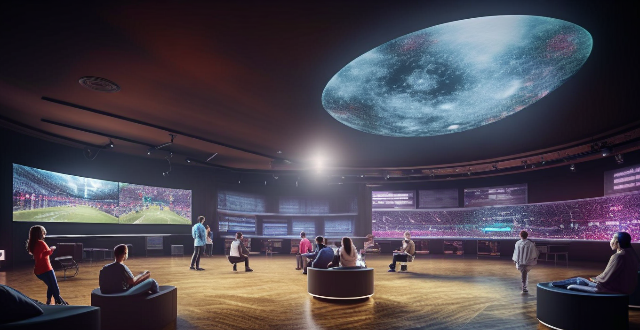
How has augmented reality transformed fan engagement in sports ?
Augmented Reality (AR) is revolutionizing fan engagement in sports by offering immersive experiences that blend physical and digital elements. AR enhances viewing experiences with interactive overlays and virtual seats, enables in-game interaction through team and player interaction and game day activities, boosts merchandise and sponsorship opportunities with interactive ads and virtual try-ons, aids navigation and wayfinding in stadiums, and encourages social sharing through augmented selfies and virtual reality social spaces. These advancements are transforming the way fans connect with sports and teams, creating more engaging and interactive experiences.
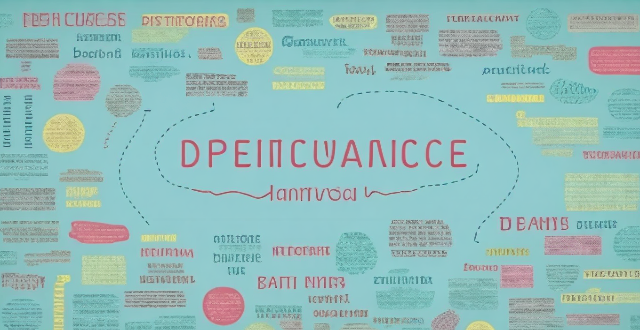
What is the definition of privacy rights ?
The text discusses the definition and importance of privacy rights, which are fundamental human rights that allow individuals to control access to their personal information and protect themselves from unreasonable interference or intrusion into their private lives. Privacy rights include the ability to choose what information about oneself is disclosed and to whom, as well as the power to determine how that information is used. The key aspects of privacy rights include control over personal information, protection from unreasonable interference or intrusion, and autonomy and self-determination. Privacy rights are essential for maintaining individual freedom and dignity, promoting trust and confidence in society, and creating a more just and equitable world where everyone has the opportunity to live their lives with dignity and autonomy.

What are some creative ways to organize a fan support event ?
Organizing a fan support event can be a fun and creative way to engage with your audience and create a sense of community around your brand or organization. Here are some creative ways to organize a fan support event: 1. Hosting themed parties, such as costume contests or trivia nights. 2. Organizing virtual events where fans can participate from home, such as live streaming the event on social media platforms or creating interactive experiences. 3. Collaborating with other brands or organizations to expand your reach and create unique experiences for fans. 4. Hosting contests and giveaways to engage fans and create excitement around your event. 5. Personalizing the event experience for fans, such as offering personalized merchandise or creating custom-made content featuring fans' names. 6. Creating interactive installations or exhibits related to your brand or organization. 7. Involving the local community in your fan support event to create a sense of belonging and connection among fans.
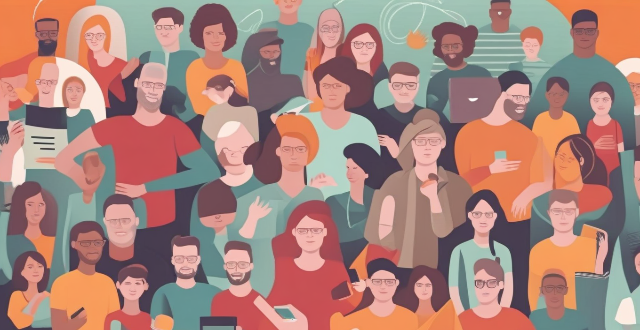
What role does social media play in organizing and promoting fan support events ?
Social media is a crucial tool for organizing and promoting fan support events, connecting fans, promoting events, engaging fans, and measuring success. It allows fans to form online communities dedicated to their favorite artists or sports teams, share news, updates, and information about upcoming events. Artists, sports teams, and event organizers can use social media to announce upcoming events, share details about the event, and encourage fans to attend. Social media also provides opportunities for fans to engage with their favorite artists or sports teams in meaningful ways, such as participating in contests and giveaways or sharing user-generated content related to the event. Finally, social media provides valuable data that can be used to measure the success of fan support events by tracking metrics such as likes, shares, comments, and reach.
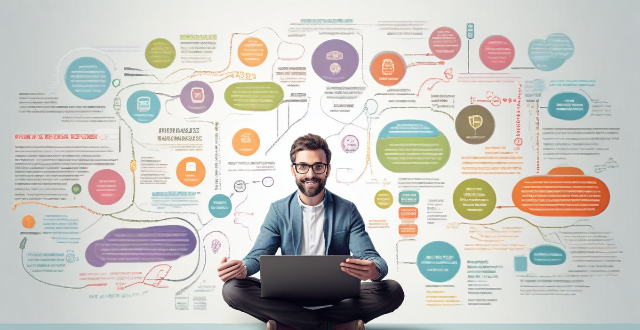
How can we ensure that climate action is consistent with human rights ?
To ensure that climate action is consistent with human rights, we need to adopt a holistic approach that takes into account the social, economic, and environmental dimensions of sustainability. Some strategies include recognizing the interdependence between climate action and human rights, integrating human rights into climate policy, ensuring transparency and accountability, promoting participatory democracy, strengthening legal frameworks, and building capacity and providing support to vulnerable populations. By doing so, we can create a more equitable and just world for all.
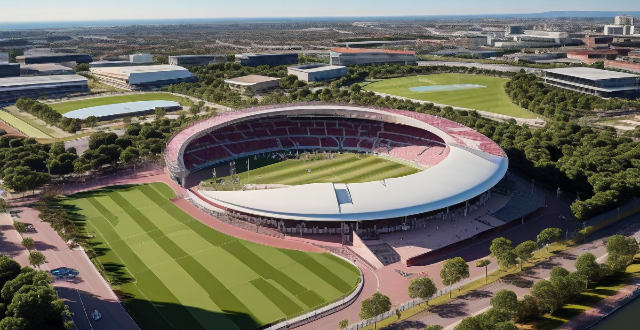
How can a sports stadium be designed to enhance fan engagement and experience ?
Designing a sports stadium to enhance fan engagement and experience requires careful consideration of various factors. These include seating arrangements, technology integration, amenities, and more. Key strategies for designing an engaging stadium involve creating premium seating options near the field, ensuring good viewing angles, providing comfortable seating, offering strong Wi-Fi connectivity, developing mobile apps, installing large screen displays, integrating interactive features, offering a variety of food and beverage options, ensuring ample restroom facilities, creating merchandise stores, designating family-friendly areas, using music and lighting effects to create an energetic atmosphere, encouraging fan interaction through contests and giveaways, and planning themed events around holidays or special occasions. By prioritizing these factors, you can ensure that your sports stadium becomes a destination for sports enthusiasts seeking an exceptional experience.
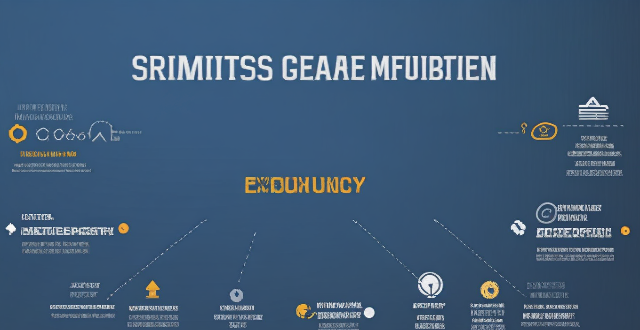
What are the legal frameworks for addressing climate change and human rights ?
The text discusses the various legal frameworks that exist to address climate change and human rights, including international agreements, national laws, and regional regulations. It highlights the importance of a multifaceted approach to tackle this complex issue and emphasizes the need to protect vulnerable communities' rights in the process. The text also provides examples of specific initiatives taken by different entities such as the United Nations, the United States, the European Union, the African Union, and the Association of Southeast Asian Nations. Overall, the text suggests that by working together at these different levels, we can create a more equitable and sustainable future for all.
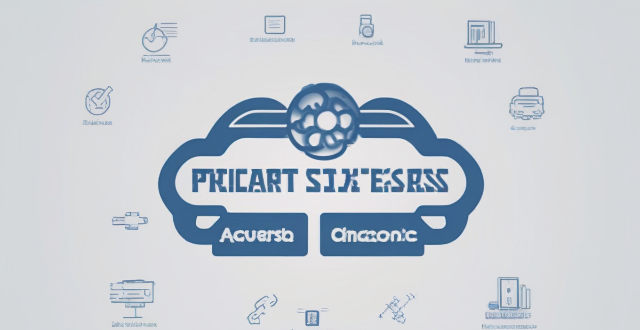
How have recent data breaches impacted public perception of privacy rights ?
The text discusses the impact of recent data breaches on public perception of privacy rights. It highlights increased awareness of privacy risks, demands for stronger protections, loss of trust in institutions, and a shift towards privacy-focused technologies. The text emphasizes the importance of prioritizing privacy rights to ensure that personal information remains secure and protected.

How does climate change impact human rights ?
The impact of climate change on human rights is multifaceted and far-reaching. It affects health and well-being, food security, water access, displacement and migration, and indigenous rights. Extreme weather events can cause physical harm and death, while rising temperatures can lead to an increase in infectious diseases. Changes in temperature and precipitation patterns can disrupt agricultural production, leading to crop failures and food shortages. Water scarcity can occur as glaciers and snowpacks melt faster than they can be replenished. Displacement and migration can have serious consequences for safety, security, and rights. Indigenous communities are often particularly vulnerable to the impacts of climate change because they rely heavily on natural resources for their livelihoods and cultural practices.

Are there any international laws or treaties related to privacy rights ?
The text discusses several international laws and treaties related to privacy rights, including the European Convention on Human Rights (ECHR), the General Data Protection Regulation (GDPR), the Charter of Fundamental Rights of the European Union (CFR), and the International Covenant on Civil and Political Rights (ICCPR). These documents provide individuals with protection against unlawful interference with their private lives, homes, and communications.
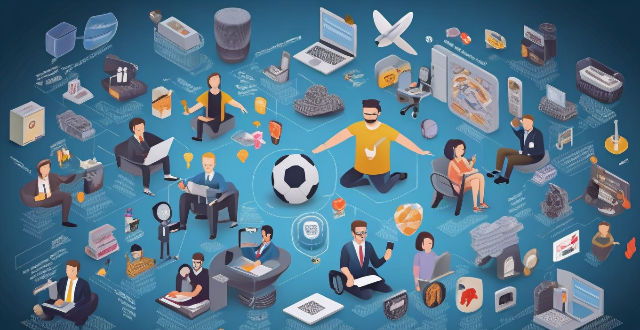
What are the key factors that influence the economic success of a sports team or league ?
The economic success of a sports team or league is influenced by various factors, including fan base and attendance, broadcasting rights and media coverage, sponsorship and partnerships, player performance and talent management, marketing and branding, financial management, governance and leadership, and legal and regulatory framework. A loyal fan base ensures consistent ticket sales and merchandise purchases, while higher attendance rates lead to increased revenue from ticket sales. Lucrative broadcasting contracts and positive media coverage attract fans and sponsors alike. Corporate sponsors provide financial support, while strategic alliances with other brands expand marketing reach. Top players attract fans and improve team performance, while effective draft strategies ensure a steady stream of talented athletes. A strong brand resonates with fans and attracts commercial interest, while creative marketing campaigns generate buzz and drive sales. Efficient spending on operations and player salaries is crucial for financial success, as is diversifying revenue streams. Strong leadership sets the course for long-term success, while transparent governance fosters trust among stakeholders. Adhering to laws and regulations avoids financial penalties and reputational damage, while fair labor agreements ensure stability. Overall, these factors work together harmoniously to create a sustainable and thriving sports organization.
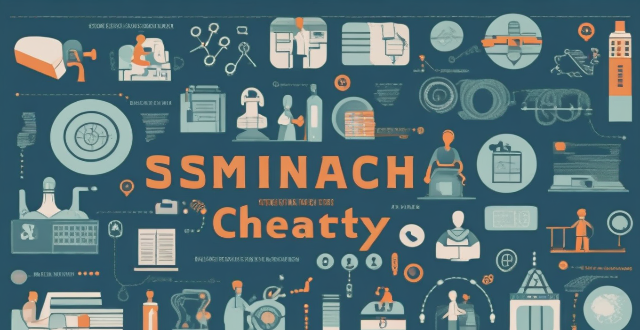
Can climate change be considered a human rights issue ?
The text discusses the impact of climate change on human rights, focusing on health and safety, access to resources, displacement and migration, and intersectionality. It argues that climate change can be considered a human rights issue because it has the potential to violate several fundamental rights enshrined in international law. The text concludes that addressing climate change is crucial for protecting and promoting human rights globally.

In what ways do governments regulate privacy rights ?
Governments regulate privacy rights through legislation, enforcement agencies, self-regulation, and public awareness campaigns. Legislation defines what constitutes personal information and sets guidelines for its collection, use, and disclosure. Enforcement agencies oversee the implementation of privacy laws and handle complaints from individuals regarding the misuse of their personal information. Self-regulation encourages industry groups to develop codes of conduct or standards that promote privacy protection. Public awareness campaigns educate citizens about their privacy rights and how to protect themselves online.

How has the #MeToo movement impacted women's rights globally ?
The #MeToo movement has significantly influenced women's rights globally by encouraging survivors to share their experiences and creating a culture of support. This has led to increased reporting and accountability for perpetrators, as well as heightened awareness about the prevalence and severity of sexual harassment and assault. Many countries have also implemented laws and policies in response to the movement, such as stricter penalties for perpetrators and protections for survivors. However, there are still challenges and limitations to its effectiveness, including the reluctance of some survivors to share their stories publicly and the underreporting and underprosecution of other forms of gender-based violence. Overall, the #MeToo movement has had a significant impact on advancing women's rights, but more work is needed to ensure full progress.

Does sports sponsorship have an impact on the fan engagement and loyalty towards a team or event ?
The influence of sports sponsorship on fan engagement and loyalty is multifaceted, with potential positive impacts such as enhanced brand visibility, improved attendance and viewership, and community involvement. However, there are also potential negative effects like overcommercialization concerns and misaligned brand values. The impact can vary based on factors including team performance and fan demographics.

What are the responsibilities of governments in addressing climate change and protecting human rights ?
Governments worldwide have a crucial role in addressing climate change and protecting human rights. Their responsibilities include legislation, public awareness, research, international cooperation, adaptation measures, protection of human rights, alignment with Sustainable Development Goals, and monitoring progress. By taking proactive steps in these areas, governments can create a sustainable future for all citizens while respecting their fundamental rights.
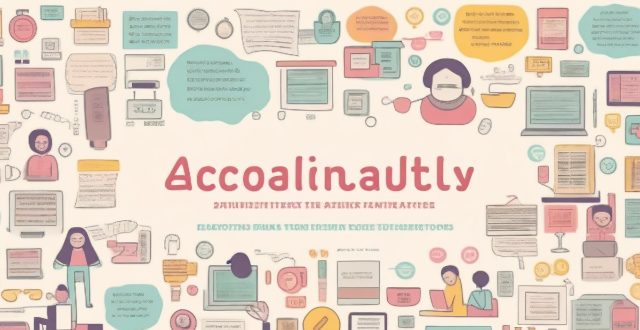
Can social media platforms be held accountable for breaches of privacy rights ?
The article discusses the accountability of social media platforms for privacy rights breaches and outlines legal frameworks, challenges, and best practices to ensure user data protection.

In what ways can AI enhance the fan experience at sporting events ?
AI is enhancing the fan experience at sporting events by offering personalized, interactive, secure, and accessible experiences. It can create customized highlights, provide real-time analytics, offer immersive VR/AR experiences, power interactive apps, enhance security through facial recognition and crowd management, and improve accessibility with live captioning, translation, and visualization tools for blind fans. These advancements are making sports more enjoyable and safer for fans worldwide.

How does the media influence the perception of different sports and their respective fan bases ?
The media significantly impacts sports perception and fan bases by focusing on popular sports, creating celebrity athletes, promoting major events, fostering online communities, and shaping public opinion. This influences how people engage with and view various sports.

What is the relationship between immigration policies and human rights issues ?
Immigration policies significantly impact human rights issues by determining who is allowed to enter a country and under what conditions. Key areas of concern include protection of refugees and asylum seekers, family reunification, labor rights, and non-discrimination. Policies should ensure the safety and well-being of refugees, facilitate family reunions without undue delay, protect migrant workers from exploitation, and promote equality in access to education, healthcare, and social services. Countries must uphold these principles to ensure fair and just treatment for all individuals, regardless of their immigration status.

What are the benefits and drawbacks of virtual fan support events compared to in-person events ?
Virtual fan support events provide global accessibility, cost-Virtual fan support events provide global accessibility, cost- benefits but face challenges like limited cost-effectiveness, and safety benefits but face challenges like limited personal interaction and technical issues. Finding a balance between virtual and in-person events is crucial for meaningful connections.